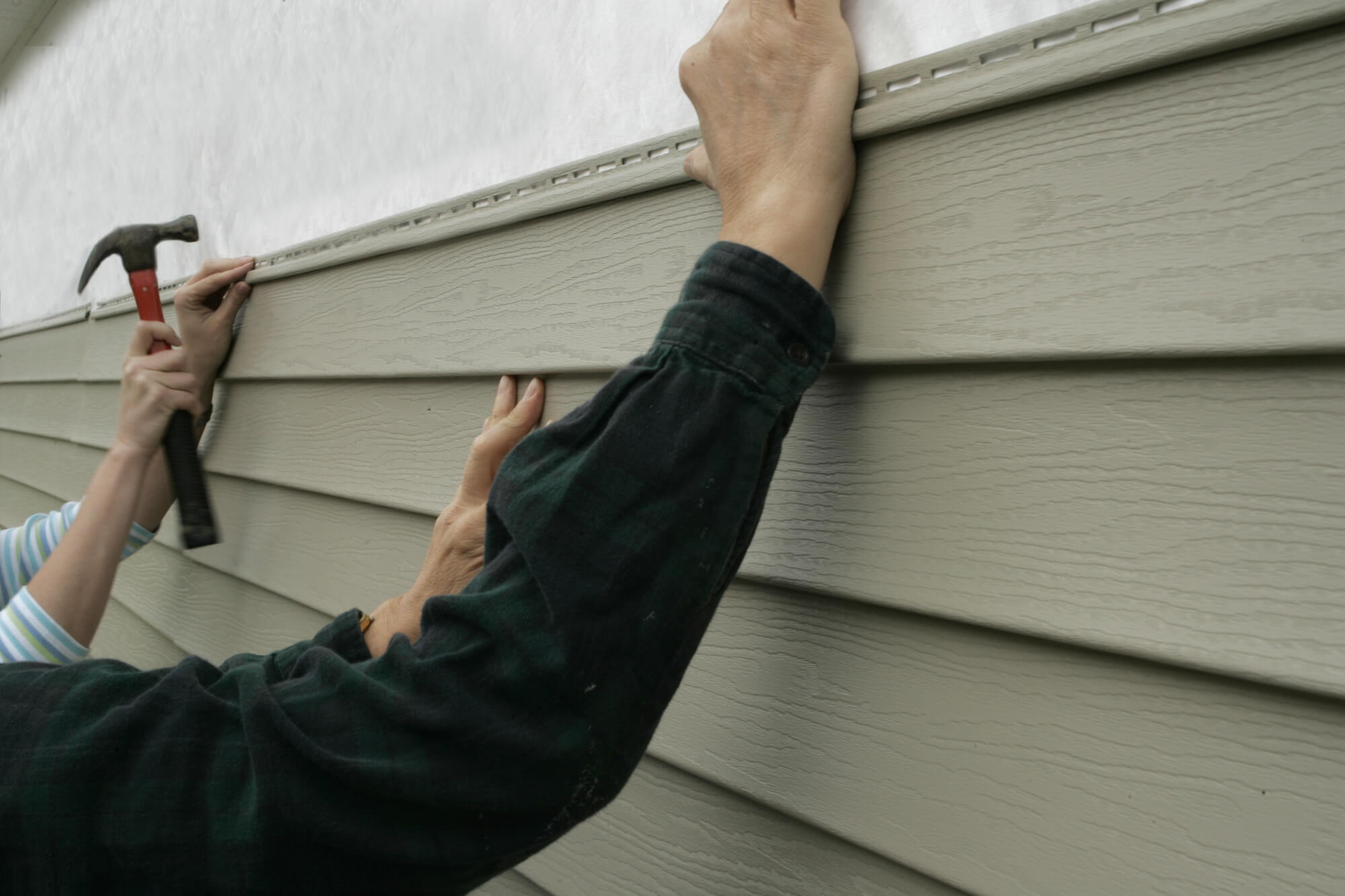Choosing the right siding installation expert is crucial for the longevity, energy efficiency, and appearance of your home. Siding not only enhances curb appeal but also acts as a protective layer against extreme weather conditions. A poorly installed siding can lead to water damage, mold growth, and high energy bills. That’s why hiring an experienced professional ensures a durable, high-quality installation. The right expert will help you select the best materials suited to your climate and budget, ensuring you get the most value for your investment.
Why Siding Installation Matters
Siding plays a crucial role in protecting your home from external elements, including rain, snow, and harsh UV rays. Properly installed siding blocks moisture from getting in. This helps prevent structural damage and mold growth. Beyond protection, siding significantly contributes to your home’s insulation.
High-quality siding materials can help regulate indoor temperatures, reducing energy consumption and lowering utility bills. Additionally, siding enhances your home’s curb appeal and increases property value. New siding makes your home look attractive and well-kept. This appeal is great, whether you plan to stay for years or sell later.
Questions to Ask a Siding Installation Expert
Before hiring a siding contractor, asking the right questions ensures you make an informed decision. Start by inquiring about their experience with your preferred siding material. Some contractors specialize in vinyl, while others have more expertise with fiber cement or wood. Ask for references or examples of previous projects to gauge their workmanship. Another essential question is whether they offer warranties on both materials and labor.
A good contractor will stand behind their work and provide guarantees for potential issues. Clarify the project timeline. How long will installation take? What delays could happen? Additionally, ask if they handle permits and cleanup after the installation. A good contractor gives clear, detailed answers. They are open about costs, timelines, and warranties. By asking these questions, you can confidently choose a professional who meets your expectations.

Red Flags to Avoid When Hiring a Siding Contractor
Not all siding contractors are trustworthy, and being aware of red flags can save you from costly mistakes. One major warning sign is an unlicensed or uninsured contractor. If a contractor lacks proper credentials, they may not follow industry standards, leaving you vulnerable to subpar work. Very low prices can be a warning sign. Affordable rates matter, but if quotes are much cheaper, it may mean low-quality materials or unskilled workers.
Another warning sign is the lack of a written contract. Contractors who demand large upfront payments without guarantees of completion should also be avoided. Poor communication, missed appointments, and unclear answers can show a lack of professionalism. Homeowners should check credentials, read reviews, and trust their gut when choosing a contractor.
Importance of a Written Contract
A good contract should clearly state the project’s scope. This includes the siding material, how it will be installed, and when it will be finished. It should also specify the total cost, payment schedule, and any additional charges that might arise. Warranty information should be clearly stated, covering both materials and labor.
Without a contract, homeowners risk hidden fees, incomplete work, or delays. Additionally, a contract ensures legal protection in case the contractor fails to meet their obligations. Trustworthy siding pros will always give a clear agreement and ask homeowners to check it before signing. Always sign a contract before starting siding installation. It ensures quality work and protects your money.
Steps to Take Before Installation Begins
Proper preparation ensures a smooth siding installation process. Homeowners should clear the area around the house. Remove patio furniture, plants, and any obstacles. This helps workers access the space easily. It’s important to communicate expectations with the contractor. Talk about the timeline, daily work schedule, and any concerns about possible disruptions. It’s advisable to inform neighbors about the project, as siding installation can be noisy and may involve large equipment.
If needed, secure permits or confirm whether the contractor will handle this step. Additionally, protect windows and doors by covering them to prevent dust and debris from entering your home. Checking the contractor’s final material selection and confirming measurements can also prevent errors. These steps make the installation process efficient and organized. They also help avoid delays.
The Installation Process: What to Expect
Understanding the siding installation process helps homeowners prepare for what’s to come. The contractor will start by taking off the old siding. They will check for any damage underneath that needs fixing. Next, they will install a moisture barrier or house wrap to enhance insulation and prevent water damage. Once the surface is prepared, the new siding is installed piece by piece, ensuring each panel is properly aligned and secured. The contractor will then install trim, seal joints, and make necessary finishing touches.
The final step involves a thorough inspection to check for gaps, warping, or alignment issues. Most siding installations take between one to two weeks, depending on the home’s size and weather conditions. Clear communication with the contractor makes installation smooth. It also helps fix any concerns right away.

Maintaining Your New Siding
Proper maintenance extends the lifespan of your new siding and keeps it looking fresh. Different materials need different care. Vinyl siding should be cleaned with soap and water to remove dirt and mildew. Wood siding, on the other hand, needs regular painting or sealing to stop rot. Inspecting your siding at least twice a year helps catch minor issues before they become major problems. Look for cracks, warping, or loose panels that could lead to moisture damage.
If you notice signs of wear, address them promptly to prevent further deterioration. Additionally, keep bushes and trees trimmed to avoid scratching or damaging the siding. Proper care ensures that your siding remains durable, energy-efficient, and visually appealing for years to come.
Key Factors to Consider When Hiring Siding Installation Experts
Hiring the right siding installation expert is crucial to ensuring a durable, energy-efficient, and visually appealing home exterior. A pro contractor will install siding the right way. They will also help you pick the best material for your climate and budget. Below are the essential factors to consider when selecting a siding installation expert.
Experience and Expertise
A contractor’s experience plays a major role in the quality of work you receive. Experienced professionals are better at managing complex installations. They can quickly solve unexpected problems and deliver top-notch craftsmanship.
How to Check a Contractor’s Experience
- Ask how many years they have been in business.
- Request before-and-after pictures of past projects.
- Inquire about their experience with your preferred siding material (vinyl, wood, fiber cement, etc.).
- Check if they have handled projects similar in size to yours.
Licenses and Certifications
Hiring a licensed and certified siding contractor ensures they follow industry rules and standards. Hiring an unlicensed contractor can lead to bad work, legal issues, and lost warranties.
What to Look for in Licensing and Certifications
- Verify if the contractor is licensed to work in your area.
- Check if they have manufacturer certifications, which indicate that they are trained to install specific siding brands.
- Ensure they follow local building codes and permit requirements.
Insurance and Liability Coverage
Accidents and property damage can occur during siding installation. A professional contractor should have proper insurance coverage to protect both their workers and your home.
Types of Insurance to Verify
- General Liability Insurance
- Workers’ Compensation Insurance
Customer Reviews and Testimonials
Online reviews and customer testimonials show how reliable, professional, and skilled the contractor is. They help you understand the experiences of previous clients and identify any potential red flags.
How to Assess Customer Reviews
- Check reviews on platforms like Google, Yelp, and the Better Business Bureau (BBB).
- Look for patterns in complaints, such as delays, poor communication, or substandard materials.
- Request direct references from past clients and contact them for feedback.

Warranty and Guarantees
A warranty protects your investment by covering defects in materials and workmanship. Reliable contractors stand behind their work and offer guarantees to ensure customer satisfaction.
Types of Warranties to Look for
- Manufacturer’s Warranty
- Workmanship Warranty
Pricing and Budget Considerations
Siding installation costs vary based on material, labor, and project complexity. While affordability is important, choosing the cheapest contractor can result in subpar workmanship.
How to Get the Best Value
- Obtain multiple quotes from different contractors.
- Be wary of unusually low bids—they may indicate poor-quality materials or inexperienced labor.
- Ensure that estimates include all costs (materials, labor, permits, cleanup, etc.).
Availability and Project Timeline
The contractor’s availability and how long they think the job will take are key things to think about. This is especially true if you have a tight schedule. Delays in siding installation can leave your home exposed to the elements.
Questions to Ask About Timeline
- How soon can you start the project?
- How long will the installation take?
- What potential delays should I expect?
Communication and Professionalism
Clear communication ensures a smooth installation process. A good contractor should be responsive, answer your questions, and keep you updated throughout the project.
Signs of a Professional Contractor
- Responds promptly to calls and emails.
- Provides clear, detailed estimates and contracts.
- Listens to your concerns and offers expert recommendations.
Use of Quality Materials
Even the best installer cannot compensate for poor-quality materials. The siding you choose should be durable, weather-resistant, and suited to your climate.
Factors to Consider When Selecting Materials
- Longevity and durability of the material.
- Weather resistance (e.g., extreme heat, cold, or moisture).
- Maintenance requirements and cost.
Cleanup and Disposal Services
Siding installation can generate a lot of debris, including old siding, nails, and packaging materials. A good contractor should handle cleanup and disposal after the project is completed.
What to Confirm Before Hiring
- Will the contractor remove and dispose of old siding?
- Do they include cleanup in their pricing estimate?
- How do they handle waste disposal?

Conclusion
To choose the best siding installation expert, look at a few key factors. Check their experience, licensing, and insurance. Also, consider warranties and customer reviews. Taking the time to research and compare different contractors ensures that you receive high-quality workmanship and durable siding. To hire the right expert, ask good questions. Check their credentials. Look at their professionalism and how well they communicate. This way, you can feel sure they’ll deliver great results. Choosing the right installer for your siding is key. It’s a long-term investment that protects and boosts your home’s exterior.

